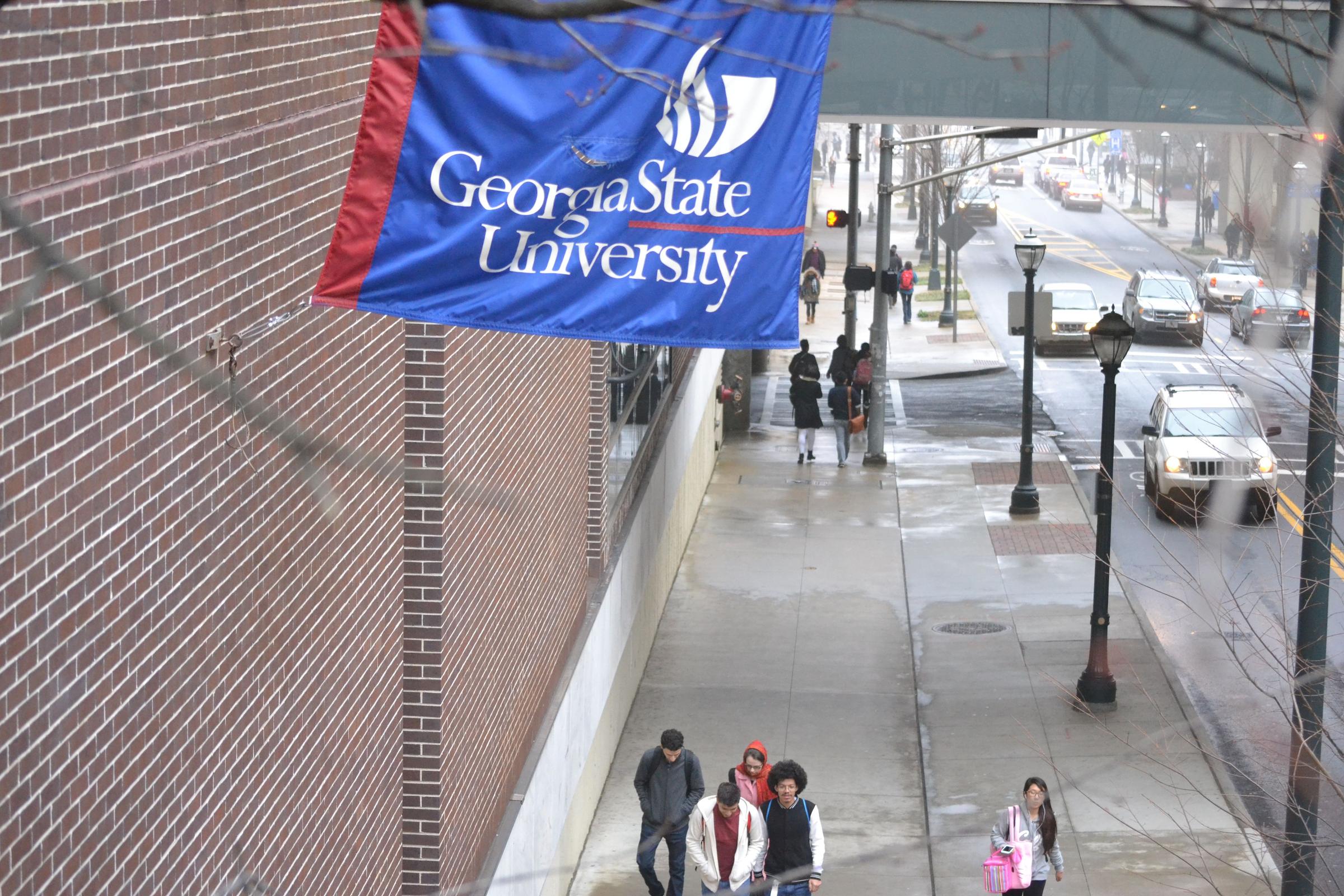In early May, Georgia State University announced its plans to form a College of the Arts separate from the current College of Arts and Sciences. The new college’s founding dean, Dr. Wade Weast, is a musician by training who has earned three degrees in trumpet performance and who spent the first years of his career gigging and teaching.
Though the decision to form an independent arts college was made before his arrival at GSU, Weast discussed the reasoning behind the move with Lois Reitzes on “City Lights.”
Weast told Reitzes that he sees the “arts serving as the front door to the university,” reaching out to the larger downtown community with concerts, plays and exhibitions. With that in mind, the College of the Arts also aims to “help with downtown revitalization” while addressing “the needs of an increasing number of on-campus students.”
Visibility of the arts at GSU is also on Weast’s mind. As he put it, the arts are “visible but somewhat tucked into the margins” in campus and city life. Now, as dean of the College of the Arts, Weast will now have a seat in the university’s governing body.
For their part, students of the arts will have “much more ownership,” considering that the current combined College of Arts and Sciences represents 70 percent of the entire university.
“It’s hard to build community when it’s so huge,” Wade observed, and it will be “somewhat easier for us to build community with a slightly smaller college.” He projected the new school won’t be small – with about 2,000 students and 90 faculty – but those numbers are more manageable when working towards visibility, ownership and community-building.
GSU’s Rialto Center for the Arts will not be included in the new college, at least at first. Weast explained that there are models around the country where a school’s performing arts center is a part of the college of the arts, and models where the performing arts center is not.
“The door is open,” he said, “but we want to make sure that we do the right thing relative to what’s best for the Rialto and what’s best for the new college.”
To that end, GSU will spend a year visiting and studying other programs and hire consultants to help make that decision.
Reitzes noted that GSU’s move seems to buck the educational trend of STEAM learning, where the arts are integrated into science, technology, engineering and math. Weast ensured that the arts are still tethered to other disciplines in the university, such as education, neuroscience and business.
Another item on Weast’s ambitious agenda addresses the needs of and career opportunities for a 21st century arts graduate. Weast said they’re working on “re-imagining the curriculum” by incorporating “entrepreneurial” skills like public speaking, grant writing, fundraising and audience development.
GSU’s new College of the Arts is scheduled to open in July of 2017.

9(MDAxODM0MDY4MDEyMTY4NDA3MzI3YjkzMw004))








